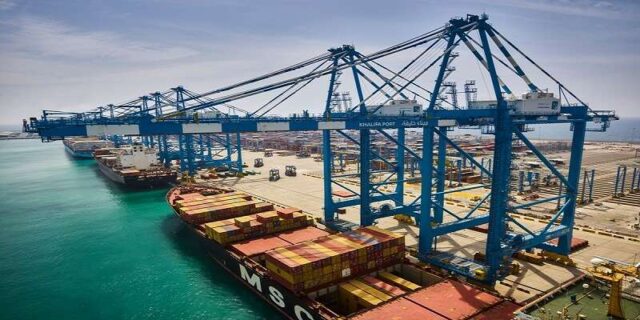Karachi, August 2, 2024 – Pakistan has witnessed a significant widening of its trade deficit by around 20% on a year-on-year (YoY) basis in July 2024, according to official data released by the Pakistan Bureau of Statistics (PBS) on Thursday.
The PBS revealed that Pakistan’s trade deficit stood at $1.95 billion in July 2024, compared to $1.63 billion in the same month last year. This swelling trade deficit can be attributed to a higher growth in the import bill compared to exports during the period under review.
The exports of Pakistan recorded an increase of 12%, reaching $2.31 billion in July 2024, compared to $2.06 billion in the corresponding month of the previous year. This growth in exports, while substantial, was outpaced by the rise in imports.
Similarly, Pakistan’s import bill surged by 15.30%, amounting to $4.26 billion in July 2024, up from $3.69 billion in the same month last year. Market analysts believe that accelerated economic activity has resulted in higher imports in July 2024.
On a month-on-month (MoM) basis, the trade deficit fell by 19.05%, down to $1.95 billion in July 2024 from $2.41 billion in June 2024. While the exports recorded a decline of around 10%, dropping to $2.31 billion in July 2024 from $2.56 billion in June 2024, the import bill also plunged by 14.27%, decreasing to $4.26 billion in July 2024 from $4.96 billion in June 2024.
Analysts attribute the month-on-month reduction in the trade deficit to the impact of budget announcements in June 2024. Many importers placed orders before July to avoid the hike in duties and taxes, leading to a significant surge in imports in June and a subsequent decline in July.
The data highlights the ongoing challenges faced by Pakistan in balancing its trade dynamics. The government is expected to take measures to address the widening trade deficit, focusing on boosting exports and managing import growth to ensure economic stability.
This trend underscores the importance of strategic economic planning and policy interventions to enhance the country’s trade performance and mitigate the impacts of external economic pressures. As the fiscal year progresses, close monitoring of trade figures and proactive measures will be crucial to sustaining economic growth and stability.
